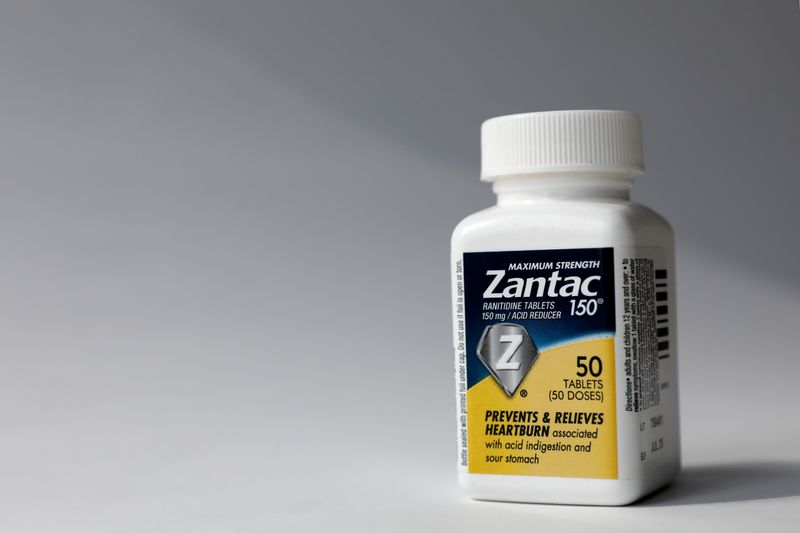By Brendan Pierson
(Reuters) -The first trial over claims that blockbuster heartburn drug Zantac, once sold by GSK and other companies, causes cancer is set to begin this week in Chicago.
Jury selection began on Tuesday before Judge Daniel Trevino of the Circuit Court of Cook County and was expected to continue Wednesday morning. Lawyers will deliver their opening statements once a jury is chosen.
GSK and Boehringer Ingelheim are the only defendants in the trial, after other companies settled.
The plaintiff, 89-year-old Illinois resident Angela Valadez, alleges in her lawsuit that she developed colorectal cancer as a result of taking over-the-counter Zantac and generic versions of it from 1995 to 2014. Like other plaintiffs suing over the drug, she says its active ingredient, ranitidine, as it ages turns into a cancer-causing substance called NDMA.
"We're happy that she's getting her day in court," said Ashley Keller, a lawyer for Valadez.
Her case is one of tens of thousands against GSK, Boehringer Ingelheim and other companies including Pfizer (NYSE:PFE) and Sanofi (NASDAQ:SNY), which have worried investors in recent years. It will offer the first test of whether the cancer claims will persuade a jury, since all cases previously set for trial settled or were dropped.
The drugmakers have maintained that Zantac does not cause cancer or contain significant amounts of NDMA under normal conditions.
"We are confident in our position based on the facts and science and look forward to presenting our case at trial," GSK said in a statement.
"The totality of the scientific evidence, which includes numerous recently conducted epidemiological studies, points to only one conclusion: Zantac does not cause any type of cancer," Boehringer Ingelheim said in a statement.
First approved in 1983, Zantac became the world's best selling medicine in 1988 and one of the first-ever drugs to top $1 billion in annual sales. It was originally marketed by a forerunner of GSK, which faces the largest potential liability, and later sold successively to the other companies.
In 2020, the U.S. Food and Drug Administration asked drugmakers to pull Zantac and its generic versions off the market after NDMA was found in samples of the drug. Thousands of lawsuits began piling up in federal and state courts.
The defendants notched a significant win in 2022, when a judge dismissed about 50,000 claims centralized in federal court in Florida. That judge concluded that the opinions of the plaintiffs' expert witnesses that Zantac can cause cancer were not supported by sound science.
Some, but not all, of the claimants in those cases are appealing the ruling to the Atlanta, Georgia-based 11th U.S. Circuit Court of Appeals.
Another judge is weighing the fate of about 72,000 cases in Delaware state court, where the drugmakers similarly argue that plaintiffs' expert testimony should be kept out.

Some other cases were previously settled, including several individual cases just before trial, and about 4,000 state court lawsuits outside of Delaware against Sanofi. Pfizer and Boehringer Ingelheim have not announced any large-scale settlements.
A new version of Zantac now on the market has a different active ingredient and does not contain ranitidine.